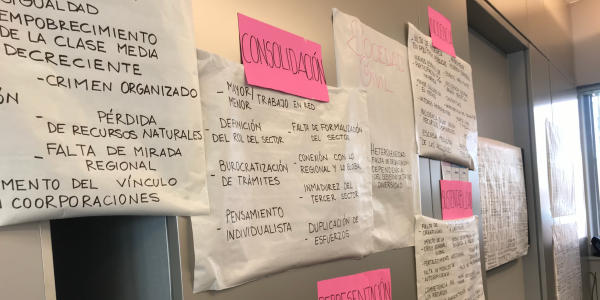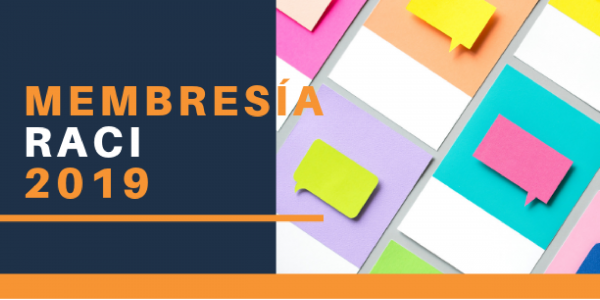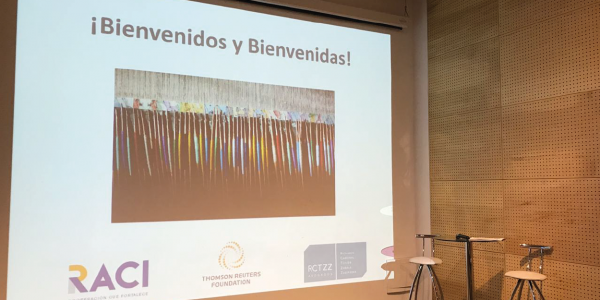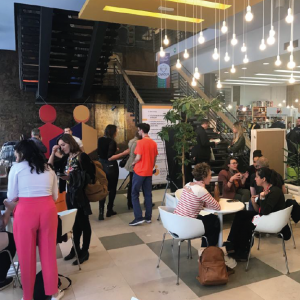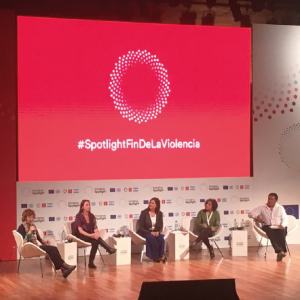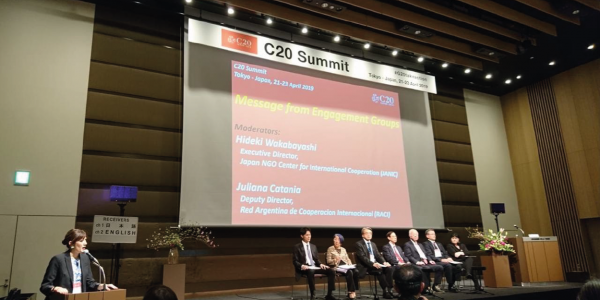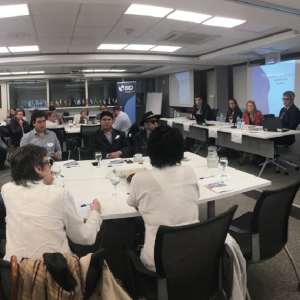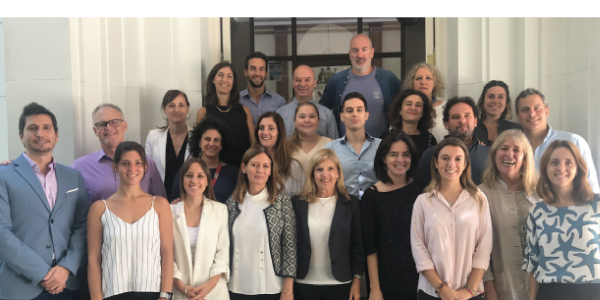Last Wednesday, RACI completed its first Synthesis Workshop, as a following in the Strategic Planning Process started in March. This workshop took place in the British Embassy and participated members from the work group that will be elaborating the planification document, as well as representatives of the different sectors with whom RACI works.
Since the begging of this year our organization has started a planification process to delineate the future of the network in the next five years. As a difference to the past years plannings, this year RACI decide to go with a methodology of participative planification, that involves the voices of all the actors that work with our organization. The objective of the network is to be able to think ahead in the future in a collective way, analyzing the different scenes on which the organization has still some work to do, in order to be able to reach its aims.
To start this process, during March, we had meetings with representatives of different sectors with whom RACI works: private sector, the academic world, the Government, International cooperation, The Actual and Historic Ejecutive Comité, members of RACI, old staff and actual staff and volunteers. The principal objective of the meeting was to collect information about the state of the world, the regions and the Civil Society, and also about RACI.
The information gained was the principal input with what we worked during this workshop. The aim of the workshop was, precisely, to be able the synthesize all the information that had been gathered in the previous meetings. Because of this, as the first exercise, the participants had to analyze if they thought that the information presented had been inspirational, surprising, threatening or an opportunity. In the second exercise, the participants had to locate questions that they thought were relevant in a mental map, which had a question in its centre saying: ‘’ How to be a relevant and effective network in order to achieve strengthening of the Civil Society?’’ This mental map will be used in the second phase of this workshop that takes place on the 31st of May.
The objective of the methodology used was to do participative planification, that includes a variety of voices. RACI is a network that works with diverse actors, and therefore, incorporates the opinions and visions of all who seem to be central in this process of delineating where we want to be in the next five years.


